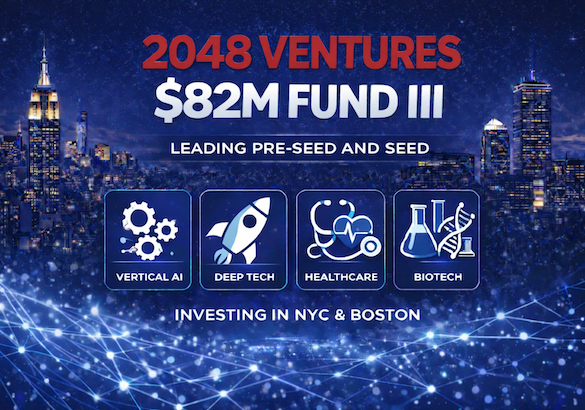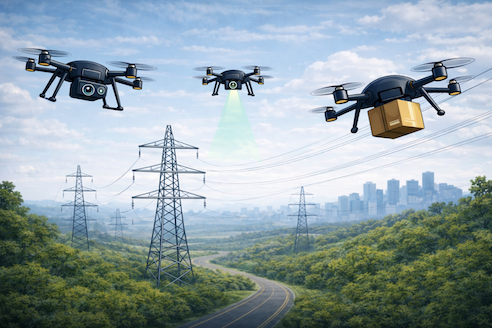Our Investment in Frate
Frate enables peer-to-peer returns for e-commerce brands.

Returns continue to plague e-commerce retailers.
In the U.S. today, 30% to 40% of all online purchases are returned. Of these, the vast majority are in perfectly good condition that should be quickly resold. Compare this number to brick-and-mortar return rates, where less than 10% of merchandise is brought back.
Each year in the U.S., 3.5 billion products, worth $400 billion, are returned. Collectively this generates five billion pounds of waste and contributes to 15 million metric tons of CO2 emitted to the atmosphere.
To put it in context, this is equivalent to greenhouse gas emissions from:
- 3 million gas-powered cars driven for one year, or
- 4 coal-fired power plants operated for one year, or
- All New York City homes’ electricity use for one year
To sequester this carbon back, we would need to plant 248 million trees.
We believe this number is a lot worse than what’s officially reported because many returns are actually sent to landfills or incinerated. A recent investigative report discovered that truckloads of perfectly good Amazon returns were being destroyed on a weekly basis. And this was only reported by one e-waste facility. It’s unclear how many e-waste vendors Amazon actually works with.
So what’s causing all this?
Obviously the growth in online shopping, which was further accelerated by COVID. But more than that, it's the industry’s standard of free shipping and free returns. It fuels a culture of excess and waste, where customers readily buy more than they need or intend to keep.
Retailers lose a third of their revenue to returns, with fashion brands the hardest hit as customers use their homes in place of a dressing room. In 2018, fashion retailer Revolve did $499M in sales but spent $531M on returns.
Slowly however, things are starting to change. Earlier this year, Zara introduced fixed fees for both online shipping and returns citing soaring return rates as being a hindrance to profit. As one of the world’s largest brands, Zara is signaling a new precedent and we believe other retailers will quickly follow-suit.
Bailey, the CEO of Frate, is determined to do something about this problem.
It all started during one of Bailey’s classes at business school where he studied H&M and some of their green washing practices. He was appalled to learn about the amount of CO2 emitted by the retailer due to returns, and began asking himself,
“Why do perfect condition returns need to go back to a store or warehouse? Why can’t they simply go to the next customer?”
This simple thought fueled the creation of Frate and, after turning down full-time employment offers, Bailey teamed up with an engineer, built an MVP, and began contacting e-commerce brands to try his product: EcoDrop.
At its core, EcoDrop asks customers to hold on to returns for up to seven days,
giving Frate enough time to find a new customer by re-listing the item at a small discount. Once an Ecodrop item is purchased, Frate handles the logistics of peer-to-peer shipping. It ends up being a win-win-win-win for everyone involved.
🤓 The original customer: Gets free return shipping or a future discount
™️ The retailer: Saves money by cutting out a leg of shipping and warehousing costs
🤠 The new customer: Receives a discount for purchasing an EcoDrop item
🌏 Our planet earth: Sees a reduction in emissions and packaging waste
Frate is live with customers, and the results have been stellar.
On average, it takes 4 days for an EcoDrop item to sell. The average revenue boost for retailers is 39%, and the average decrease in CO2 emissions is 36% per order. The number of customers complaining about their EcoDrop purchase? Zero.
But this is just the beginning. Frate has plans to continue further optimizing the entire returns experience.
Taking a step back, there are really only two ways to deal with the problem of excess returns. The first is to reduce the number of items being returned. The second is to make the returns process more cost-effective and efficient.
At 2048 Ventures, we’ve seen a number of startups focused on the former. This includes digital fitting technologies, incentivizing exchanges vs. returns, or enabling physical showrooms. Frate is squarely focused on the latter and plans to push further into leveraging physical stores and customer data to hyper-optimize the movement of goods within a closed-loop network so that a perfectly good item never hits a landfill or incinerator.
Frate’s team has grown to five members,
including a strong engineering team led by Yenn Lei (ex-Emotive), Jake Goodman (ex-Shopify), and Aleksey Tsaplin (ex-Meta). Frate recently closed its pre-seed round, which we are thrilled to have led alongside our friends at Matchstick and Mergelane!
Sources:
https://smith.queensu.ca/insight/content/the-trouble-with-online-shopping-returns.php
https://www.epa.gov/energy/greenhouse-gas-equivalencies-calculator#results
https://www.voguebusiness.com/consumers/returns-rising-costs-retail-environmental
Subscribe to our newsletter
Signup to get blog posts with our investments, theses and important announcements from 2048 Ventures.


